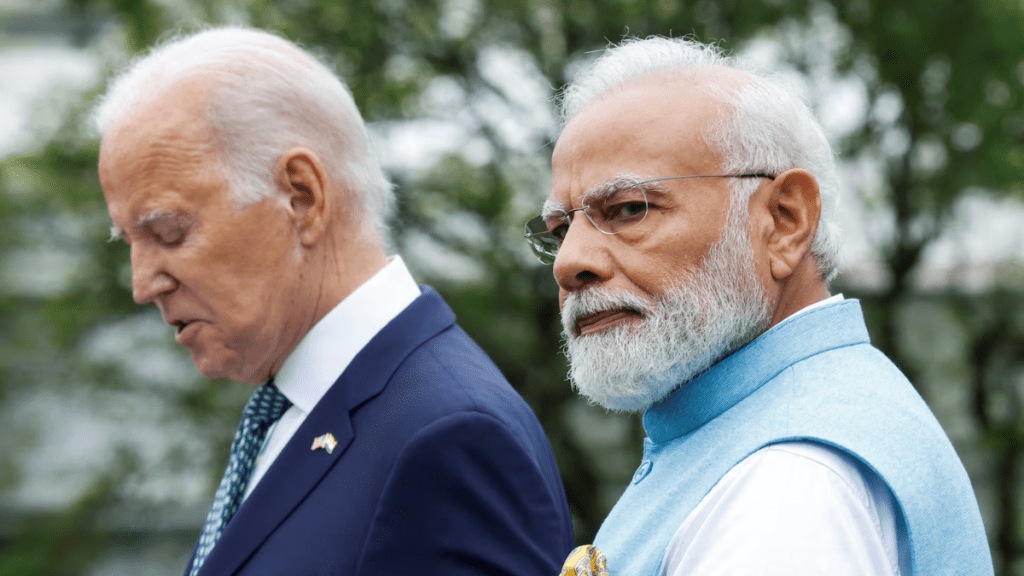India has strongly criticized the US State Department’s International Religious Freedom report for 2023, accusing it of being biased and lacking a true understanding of India’s diverse social fabric. The Indian government has outrightly rejected the report, asserting that it is driven by political motives and an agenda-based perspective.
At the weekly briefing, official spokesperson of Ministry of External Affairs (MEA), Randhir Jaiswal said that the report is filled with imputations and misrepresentations. It selectively uses facts and relies on biased sources, presenting a skewed narrative. According to the spokesperson the critique extends to the report’s depiction of India’s Constitutional provisions and laws, suggesting a deliberate attempt to misrepresent them.
Official Statement Issued by MEA
“We have noted the release by the US State Department of its report on International Religious Freedom for 2023. As in the past, the report is deeply biased, lacks understanding of India’s social fabric and is visibly driven by vote bank considerations and a prescriptive outlook. We, therefore, reject it.
The exercise itself is a mix of imputations, misrepresentations, selective usage of facts, reliance on biased sources and a one-sided projection of issues. This extends even to the depiction of our Constitutional provisions and duly enacted laws of India. It has selectively picked incidents to advance a preconceived narrative as well.
In some cases, the very validity of laws and regulations are questioned by the report, as are the right of legislatures to enact them. The report also appears to challenge the integrity of certain legal judgements given by Indian courts.
The report has also targeted regulations that monitor misuse of financial flows into India. Suggesting that the burden of compliance is unreasonable, it seeks to question the need for such measures. On its own part, the United States has even more stringent laws and regulations and would surely not prescribe such solutions for itself.
Human rights and respect for diversity have been and remain a legitimate subject of discussion between India and the United States. In 2023, India has officially taken up numerous cases in the US of hate crimes, racial attacks on Indian nationals and other minorities, vandalization and targeting of places of worship, violence and mistreatment by law enforcement authorities, as well as the according of political space to advocates of extremism and terrorism abroad.
However, such dialogues should not become a licence for foreign interference in other polities.”
Contentious Issues
One of the significant points of contention is the report’s questioning of the validity of certain Indian laws and regulations. He stated that the report undermines the authority of Indian legislatures and the integrity of legal judgments by Indian courts. This is an overreach and an unwarranted challenge to India’s legal framework.
Moreover, the report targets regulations designed to monitor financial flows into India, suggesting that the compliance requirements are overly burdensome. India counters that the US has even stricter financial regulations and would never accept similar criticisms directed at its own measures.
India also highlights the irony of the US questioning India’s human rights record while there are numerous instances of hate crimes, racial attacks, and mistreatment of minorities in the US. In 2023, India officially raised several cases of such issues with the US, including attacks on Indian nationals and places of worship, and the mistreatment by law enforcement authorities. These incidents, according to India, underscore the need for the US to address its own human rights issues before criticizing other countries.
According to the official spokesperson, while India acknowledges that human rights and respect for diversity are legitimate topics for dialogue between nations, it firmly believes that such discussions should not be a pretext for foreign interference in domestic affairs. He said that India will not allow its internal matters to be dictated by external entities under the guise of human rights advocacy.


